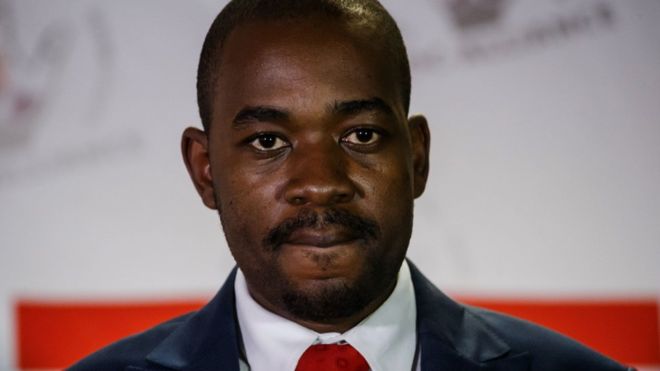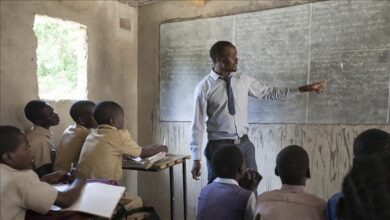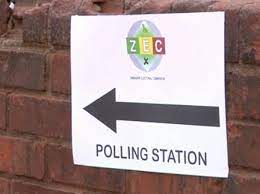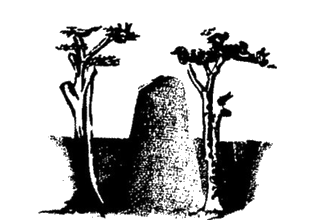MDC opposed to second GNU

The opposition MDC is averse to the formation of the second government of national unity (GNU) to solve the country`s political and economic crisis opting for a transitional mechanism that allows for broader participation of other stakeholders.
Zimbabwe entered into its first GNU in 2009 after inconclusive elections were held the previous year with the late former president Robert Mugabe remaining retaining his presidency while the late MDC-T leader Morgan Tsvangirai settled for the Prime Minister position.
That power-sharing agreement was facilitated by former South African President Thabo Mbeki, who was in the country again this December, where he met leaders of the ruling and opposition parties.
Mbeki’s visit during such a time when Zimbabwe is facing a deep socio-economic crisis has brought expectations that another GNU is on the cards to solve the impasse.
But the MDC has ruled out a GNU as the party was ‘totally’ opposed to it.
“We as the MDC didn’t invite Thabo Mbeki to come to Zimbabwe but when he reached out to us and wanting to speak to us we agreed to meet him. The talks have not yet started, there are no talks so there is no position but in our Return to Economic Recovery, Legitimacy, Openness and Democracy (RELOAD) document we are very clear and guided by the 5th congress in Gweru, our position is that we are totally opposed to the government of national unity, “MDC National Spokesperson, Daniel Molokele, said to the press after a National Council Meeting in Bulawayo.
He said that MDC preferred a transitional mechanism instead where all stakeholders in Zimbabwe formed a temporary government.
“This is a different concept altogether with the GNU where political parties in Parliament form a government. A transitional mechanism means the president cannot come from even any political party but can be a respected former judge or a respected former civic society leader where they are given a two to three year period to make sure we have a transitional process with comprehensive reforms.”
Molokele said a transitional government had occurred in countries such as Sierra Leonne and Ivory Coast, and could be guaranteed by SADC, the African Union and the United Nations.
“Within a two to three-year period, we will create an environment that allows for a free and fair election and the winner wins and the crisis of political legitimacy comes to an end,” he noted.
He added that MDC’s stance was for Zimbabweans to benefit from the democratic or political process and not for the party to win power at all costs.
“Even if it means the MDC or Chamisa is not in government or in power. So ours is a will to transform, not a will to power. The current political context will not allow an end to the political crisis because every election we will have, even the one in 2023 is already disputed,” Molokele alleged.
The party spokesperson claimed elections could not be free and fair, as Zanu PF has an unfair advantage over other contestants.
“Zanu PF controls the state media, security, police, all civil servants, all companies of the state, controls ZUPCO, District Development Fund – all those institutions are involved in the election. As the MDC we are totally opposed to the current electoral law and we are against the electoral environment because it is impossible in Zimbabwe to have a free and fair election right now,” he said.
Molokele highlighted that the party’s blue print policy was clear that when it came to a national dialogue, it had to be all-inclusive and be facilitated by a mutual convener.
“We prefer someone who is not compromised but is international, not local. We don’t recognise POLAD because it is a collection of Zanu PF sympathetic presidential hopefuls. POLAD is not a credible institution to resolve the national crisis but is an extension of Zanu PF and MDC will not participate in POLAD,” he said.
“However we are calling for an inclusive genuine national dialogue process, not just for politicians but for faith-based leaders, women, youth and all other stakeholders.”
Molokele clarified that an all-inclusive process meant that MDC and Zanu PF should be involved, not for either to be excluded.
“Unless and until both Zanu PF and MDC are seated on the same table with the rest of Zimbabweans, there is not going to be any credible dialogue process. We are not saying MDC and Zanu PF are the only parties or institutions that matter but an all-inclusive process or any process that doesn’t have them inside is just a waste of people’s time,” he insisted.






